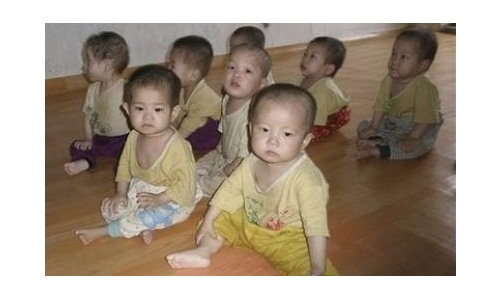Disease, malnutrition soar after N. Korea floods: UNICEF
Seoul: UNICEF said Tuesday that the recent deadly flooding in North Korea had washed entire communities away, leaving tens of thousands of people homeless with disease and malnutrition on the rise.
At least 138 people have died and hundreds more are missing after torrential rains caused devastation in the country's far north, with rescue teams only now making it to more remote, hard-hit areas.
"It was really shocking to see the scale of damage," said UNICEF’s Anil Pokhrel who was part of the relief team that visited Musan Country, which is separated from China by the Tumen River.
Photographs of the area showed barren expanses of mud dotted with the wreckage of homes, as local residents -- wrapped up against the coming winter -- struggled to salvage what they could to rebuild.
Disease and malnutrition are rising, UNICEF said, with health clinics reporting that twice as many children were seeking help compared to before the disaster.
Respiratory infections, diarrhoea and indigestion are also increasingly common, they added.
Aid workers were distributing peanut paste, which is used to treat severe acute malnutrition, to local children, warning that "numbers are expected to rise dramatically without support".
"There is desperate need for proper and good access to food, nutrition, clean water, health and proper sanitation facilities," said Pokhrel.
Houses, roads and train lines were all washed away in the area, leaving more than 24,000 people homeless, cut off from help, and struggling to find food and clean water.
"The damage is on a much bigger scale than initially thought," said Pokhrel.
The impoverished nation is vulnerable to natural disasters, especially floods, due partly to deforestation and poor infrastructure.
Related Posts

